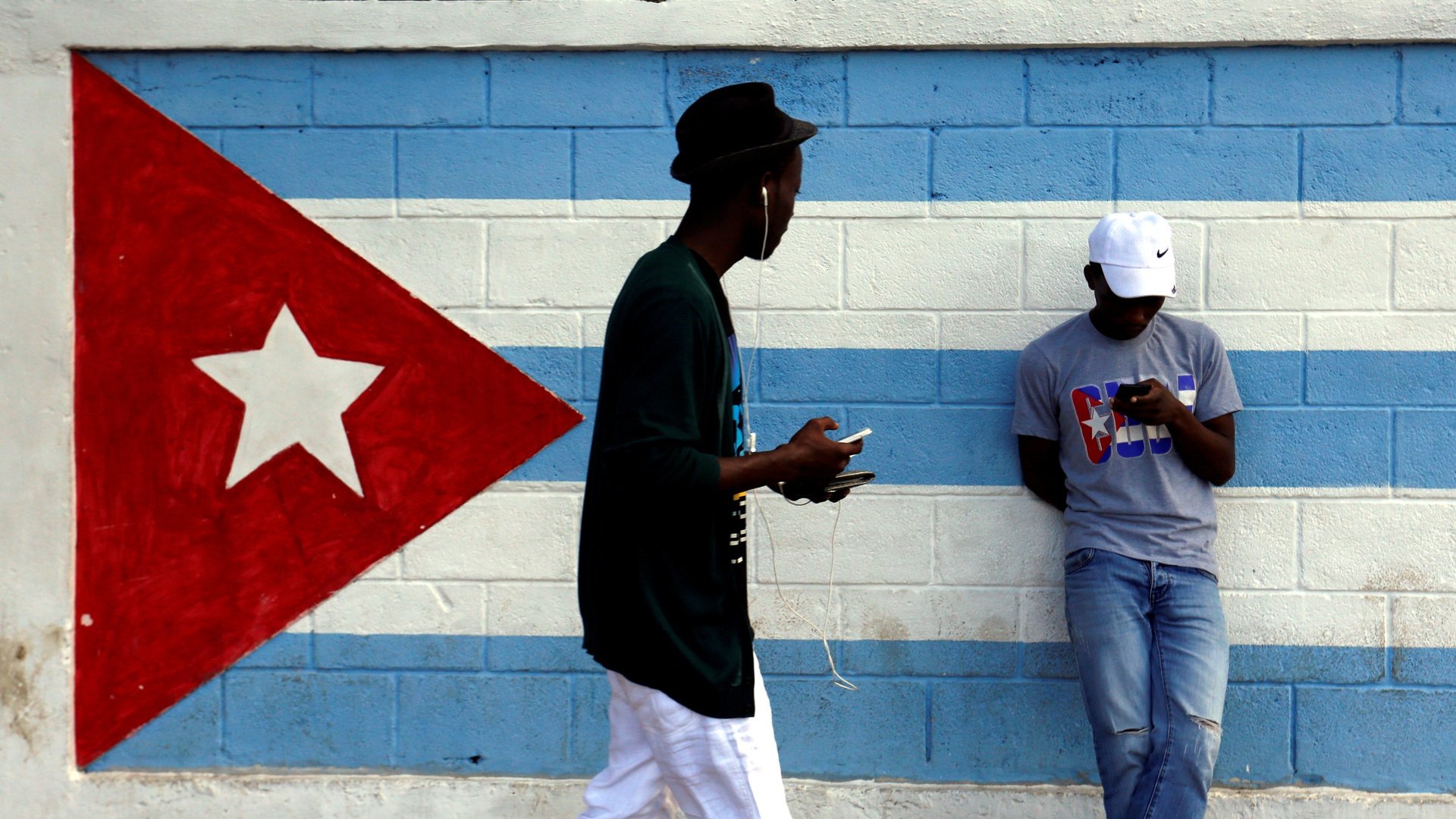After Fidel Castro’s death, Donald Trump’s stance on Cuba is straight out of 1962
The death of Fidel Castro could be an opportunity to further normalize relations between the United States and Cuba, but president-elect Donald Trump seems unlikely to take it.


The death of Fidel Castro could be an opportunity to further normalize relations between the United States and Cuba, but president-elect Donald Trump seems unlikely to take it.
In 2014, US president Barack Obama used his executive authority to ease a blockade on Cuba that dated back to 1962. Designed to prepare for a transition to a post-Fidel Castro world, Obama’s policies were established in concert with Fidel’s brother Raul, the leader of the Cuban government, to increase US travel to the island, expand opportunities for some kinds of trade and re-open embassies in each country. However, the US trade embargo against Cuba remains in place; despite popular support for lifting it, Cuba hawks in Congress have blocked efforts to end the sanctions.
On the campaign trail, Trump—who likely violated the embargo himself after financing a business trip there—said both that Obama’s moves were “fine” and that his own abilities as a international negotiator will allow him to make a better deal with Cuba. More recently, Trump and his future White House Chief of Staff Reince Priebus have threatened to roll-back Obama’s steps toward normalization, unless Cuba makes further concessions. But unilateral concessions seem an unlikely first move for Raul Castro’s government in the wake of his brother’s death.
Most of Obama’s executive actions on Cuba were made in the Treasury Department, which supervises economic sanctions on foreign countries. Last week, Trump’s transition office announced a team of officials who would visit Treasury to begin reviewing policy and preparing for the next administration. One of them, Mauricio Claver-Carone, is an outspoken critic of normalization.
“There’s no longer any rational strategy behind President Obama’s ‘Cuba policy,'” Claver-Carone wrote in November. “It has gone from what it initially portrayed as a noble purpose to pure sycophancy in pursuit of ‘historic firsts.'”
Claver-Carone argued that Obama’s policies are only empowering US corporations and Cuba’s repressive regime, akin to “when US foreign policy famously teamed with Latin American dictators and American corporations, like the United Fruit Company, to negotiate away the economic future of those nations.”
Concerns that Cuba’s state-owned monopolies will be the biggest beneficiaries of normalization are very real, though in the global markets they’re dwarfed by Russian and Chinese state-owned firms. At the same time, the flood of tourists has also boosted the fortunes of Cuban citizens in the country’s nascent private sector and given opportunities to entrepreneurs. The Obama administration and its backers have no illusions about working with the regime, but they make a pragmatic argument about paving the way for a post-socialist Cuba and aiding the impoverished Cuban people.
“While the internal dynamics of the hermetic Cuban regime are opaque, the uneven pace of reforms suggests on-going struggles between orthodox Communists and the economic reformers,” Richard Feinberg, an economist and long-time observer of the Cuban economy, wrote in 2012 (pdf). “US policies that strengthen private business in Cuba bolster reform and increase the probabilities of a gradual economic transformation.”
But pragmatism is a difficult sell, despite decades of failure under the old policy regime. There are still Cuban-Americans who carry personal grievances against Castro and his repressive socialist system. Others have economic interests at play—outstanding claims for redress from seized properties during the revolution were a sticking point even before Trump’s election. Indeed, in his op-ed, Claver-Carone makes a simplistic reference to the complicated intellectual property battle between Bacardi Rum and Cuba’s state-produced Havana Club Rum.
It’s not clear yet what the Cuban government will become after the death of Fidel. The status-quo could be preserved, more liberalization could result with US backing, or the communist party may be most influential—and foreign hardliners tend to benefit when they can blame the US for their people’s problems; the embargo has long served that purpose for the Cuban government.
Obama’s balanced statement on Castro’s death was intended to create an opening for contact, but Trump emphasized that “Castro’s legacy is one of firing squads, theft, unimaginable suffering, poverty and the denial of fundamental human rights.” It is a difficult posture for Trump to take while he continues to praise bloody authoritarians like Vladimir Putin and Bashar al-Assad.
There is a significant US business lobby, aching to trade with Cuba, that will pressure lawmakers and Trump’s administration to keep normalization on track and lift the embargo. It remains to be seen whether Trump will listen to them, though they are counting on his experience as a hotel operator and his past interest in working with Cuba to benefit them.
The other, most critical lobbyist here? Obama himself, who is reportedly spending hours on the phone with Trump discussing the challenges facing the US government, including Cuba normalization.